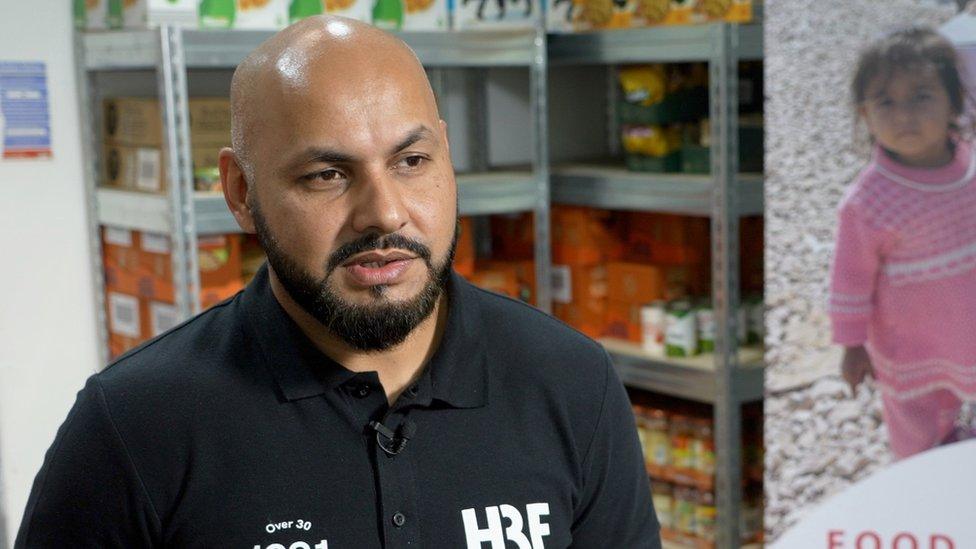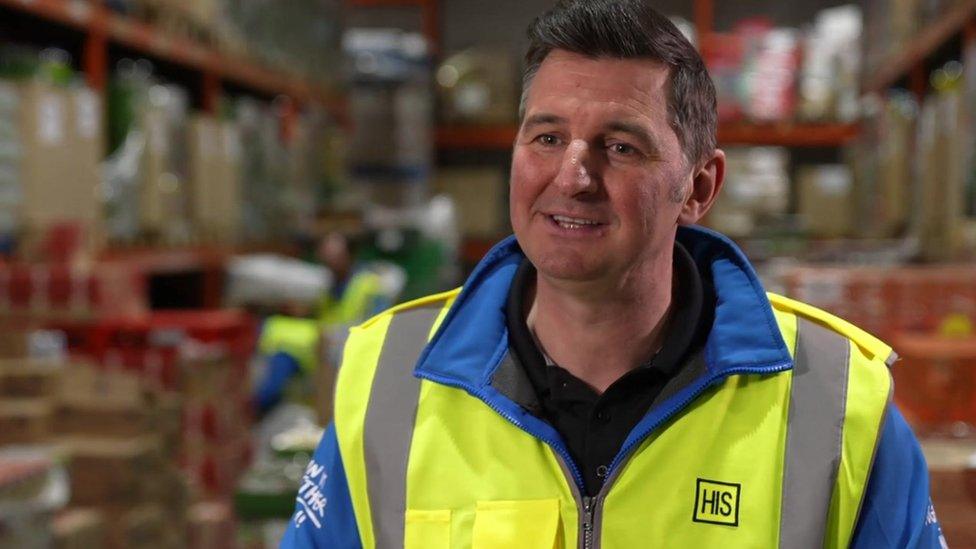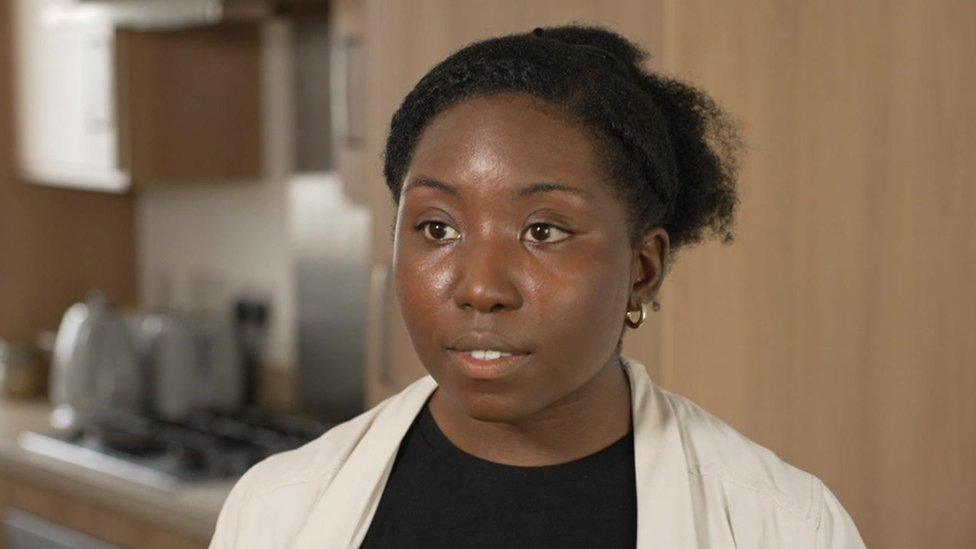Demand for food banks 'alarming' says Birmingham charity
- Published

Junaid Butt from the Human Relief Foundation said the demand is "massively alarming"
A charity said a rising demand for help from food banks is "massively alarming".
Organisations which previously operated overseas said they are now providing more aid to those in the UK.
After 30 years providing foreign aid, one charity has opened a food bank in Birmingham after calls for help from a primary school.
The government said it recognises the pressures on the cost of living and is introducing measures to help.
The Human Relief Foundation spent three decades working to provide aid overseas, mainly in the Middle East, for example supporting Syrian refugees in Lebanon.

After 30 years providing aid abroad, Human Relief Foundation, opened a food bank in Birminghan
But in recent months organisers felt compelled to open a food bank in Birmingham.
Mr Butt said: "To see working class families now actually needing food to survive, or get through the month, they need a top up of food is massively alarming.
"For 30 years our local community has helped us. Now they need our help, it is our moral duty to give back."
It said the level of need became apparent when it was contacted by Chandos Primary School in Highgate, where 60% of children are on free school meals.

Headteacher James Allan said it is committed to providing help to parents
Harjit Kaur, parent pupil link worker said, as well as food, parents are asking for help for basic items like shampoo.
James Allan, headteacher, said they thought need may reduce as coronavirus restrictions eased but demand has actually "increased".
"Unfortunately it is a provision we are committed to," he said.
Richard Humphrey, operations director of organisation His Church, which has provided supplies to the Human Relief Foundation, said previously 70% of its aid also went abroad, but now just under 80% is sent across the UK.

Richard Humphrey said it is providing increasing amounts of aid to people in the UK
"It is extraordinary to see the amount of need that is developing in this country," he said.
A government spokesperson said: "We recognise the pressures on the cost of living and we are doing what we can to help, including spending £22 billion across the next financial year to support people with energy bills and cut fuel duty.
"For the hardest hit, we're putting an average of £1,000 more per year into the pockets of working families on Universal Credit, have also boosted the minimum wage by more than £1,000 a year for full-time workers and our Household Support Fund is there to help with the cost of everyday essentials."

Follow BBC West Midlands on Facebook, external, Twitter, external and Instagram, external. Send your story ideas to: newsonline.westmidlands@bbc.co.uk
Related topics
- Published18 May 2022

- Published18 May 2022
